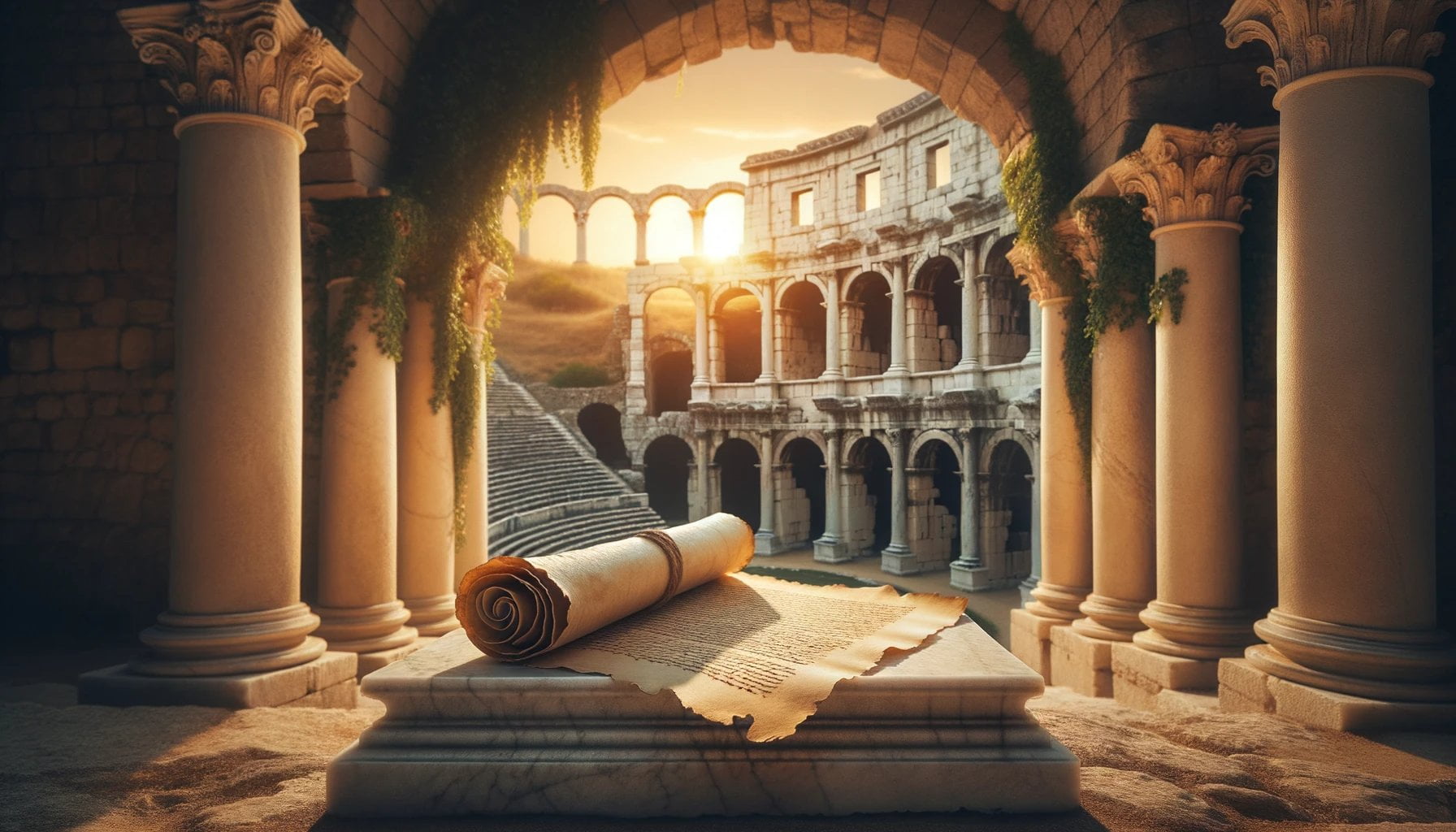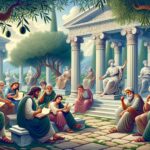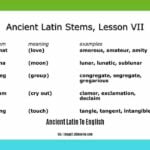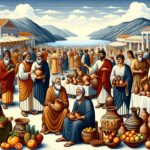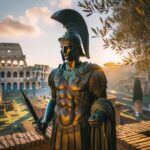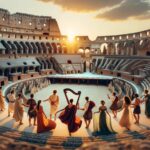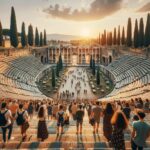Discover the profound impact of poetry in ancient Rome with a fascinating journey through the world of Latin verse. Delve into the remarkable works of renowned Roman poets, explore the cultural and social contexts that shaped their verses, and unravel the historical elements that influenced their art. From the passionate odes of Catullus to the powerful epics of Virgil, this exploration of famous ancient Roman literature will transport you to a time of artistic excellence and literary brilliance.
Key Takeaways:
- Roman poetry emerged as an adaptation of Greek models but developed its own unique characteristics and innovations.
- Roman poetry was influenced by the social and political context of the Roman Empire and was often written with the oral tradition in mind.
- The Golden Age of Roman poetry occurred during the reign of Emperor Augustus and featured renowned poets like Virgil, Horace, and Ovid.
- Roman poetry covered a wide range of topics, including epic stories, love poetry, and scandalous epigrams.
- Roman poetry had a significant influence on art, with many painters and sculptors drawing inspiration from the works of poets like Virgil.
- Love poetry was a prevalent and personal theme in Roman poetry.
- Roman poetry continues to be celebrated for its literary contributions through the works of famous poets such as Virgil, Lucretius, Catullus, Horace, Ovid, Martial, and Juvenal.
Unveiling the Poetry of Ancient Rome: Insights into Cultural, Social, and Historical Elements
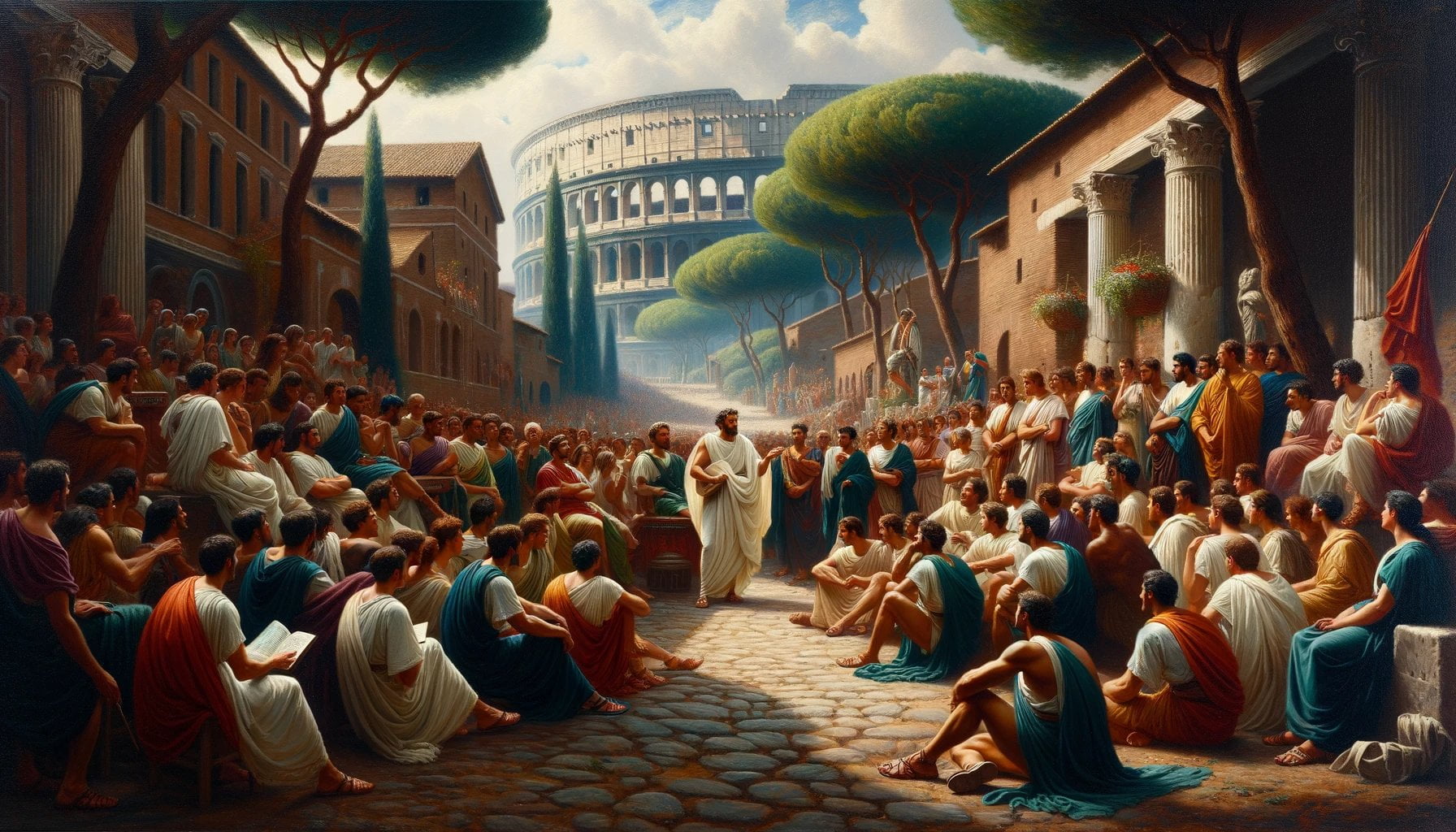
The Intricate World of Roman Poetry
Roman poetry, rooted in Greek models yet distinctly innovative, provides a fascinating window into the cultural, social, and historical facets of ancient Rome. With its origins dating back to the second century B.C., Roman poetry encompasses a wide range of topics, including epic stories, love poetry, and even scandalous epigrams. It is a genre that flourished during the Golden Age of Roman literature, particularly during the reign of Emperor Augustus. In this article, we will delve into the intricacies and nuances of poetry in ancient Rome, exploring the renowned poets, poetic techniques, and prevalent themes that shaped this captivating era.
The Influence of Greek Models and Roman Innovations
The World History Encyclopedia describes how Roman poetry emerged as an adaptation of Greek models, infusing them with its own unique characteristics and innovations. During the Golden Age, Roman poets such as Virgil, Horace, and Ovid drew inspiration from their Greek predecessors. They skillfully wove Latin literature and poetry into an acceptable form for the aristocracy and intellectuals of the time.
Famous Roman Poets and Their Contributions
Roman poetry boasts a plethora of iconic figures whose works continue to be celebrated for their literary contributions. Virgil, known for his epic poem Aeneid, crafted a riveting narrative that depicted the origins of Rome and the heroic journey of Aeneas. Horace, on the other hand, graced the world of poetry with his lyrical verses and philosophical musings. Ovid weaved captivating realms of mythology and love, while Catullus and Martial pushed the boundaries of societal norms with their unconventional and sometimes scandalous poems. These poets, among others like Lucretius and Juvenal, showcased the versatility and brilliance of Roman poetry.
Exploring Themes and Techniques
Love poetry, a deeply personal and prevalent theme in Roman literature, emerged as one of the central motifs in Roman poetry. The Collector describes how poets like Ovid and Catullus fearlessly delved into the realm of romantic passion, often challenging societal norms and expectations. Additionally, Roman poets were inspired by the political and social context of the Roman Empire, embedding these influences into their compositions. They employed various poetic techniques, such as vivid descriptions and meticulous attention to meter and rhythm, to captivate their audiences and bring their verses to life.
Poetry’s Influence on Art
Roman poetry’s impact extended beyond the boundaries of literature and into the realm of art. Poets often described scenes and themes that subsequently inspired artists to depict them in their works. The epic poem Aeneid by Virgil, for instance, ignited countless paintings and sculptures illustrating scenes from the epic saga. This interplay between poetry and art demonstrates the profound influence poetry had on various forms of artistic expression in ancient Rome.
The Enduring Legacy of Roman Poetry
Roman poetry, with its rich tapestry of themes and techniques, leaves an indelible mark on the world of literature. It continues to captivate readers with its vivid storytelling, philosophical ponderings, and timeless themes. By delving into the cultural, social, and historical elements that shaped Roman poetry, we gain a comprehensive understanding of its profound impact on the ancient Roman world and its enduring legacy.
Table: Famous Roman Poets
| Poet | Notable Works |
|---|---|
| Virgil | Aeneid |
| Horace | Odes |
| Ovid | Metamorphoses |
| Catullus | Carmina |
| Martial | Epigrams |
| Lucretius | De Rerum Natura |
| Juvenal | Satires |
In conclusion, poetry in ancient Rome emerged from the influence of Greek models and underwent its own unique transformations. It covered a breadth of themes, from epic narratives to intimate expressions of love. Roman poets drew heavily from the social and political context of the Roman Empire, shaping their verses accordingly. Their works continue to be celebrated for their literary contributions and have left an enduring legacy that influences art and literature to this day. By exploring the intricacies of poetry in ancient Rome, we gain invaluable insights into the cultural, social, and historical elements that shaped this captivating era.
Sources:
In ancient Rome, villages played a crucial role in shaping the cultural landscape. Explore the fascinating history of villages in ancient Rome by clicking here.
Discover the thrilling world of games in ancient Rome and delve into the excitement that captivated the citizens. Click here to unravel the mysteries of ancient Roman games.
Uncover the invasions that shaped the destiny of ancient Rome and explore the fascinating accounts of its conquerors. Click here to learn about the invaders of ancient Rome.
Step into the shoes of a praetor and witness the power and influence they held in ancient Rome. Click here to delve into the life of a praetor in ancient Rome.
Engage in the ancient battles of Rome and discover the strategies that made them legendary. Click here to explore the thrilling world of ancient Roman battles.
Indulge in the mesmerizing rhythms and movements of ancient Roman dance, an art form that added vibrancy to their culture. Click here to experience the enchantment of ancient Rome through dance.
Famous Poetry In Ancient Rome
The era of ancient Rome was a captivating time that gave birth to some of the most renowned poets in history. From epic tales to lyrical verses, Roman poetry was characterized by its profound impact on literature and art. Let’s delve into the cultural, social, and historical elements that shaped poetry in ancient Rome and explore the works of its most famous poets.
The Golden Age of Roman Poetry
In the Golden Age of Roman poetry, which spanned from approximately 70 BCE to 14 CE, several notable poets emerged, leaving an indelible mark on the literary world. At the forefront of this era stood Virgil, Horace, and Ovid, whose contributions continue to be celebrated today.
Virgil was a poet of immense talent and is most renowned for his epic poem, The Aeneid. This masterpiece tells the compelling story of Aeneas, a Trojan hero, and his journey to establish the foundation of Rome. The Aeneid weaves historical events and mythological narratives together, cementing its status as Rome’s national epic.
Another prominent poet from this era was Horace, whose collection of lyric poems, The Odes, captivated readers with its diverse themes and subjects. From love and friendship to political and philosophical musings, Horace crafted verses that resonated with ancient Roman society.
Ovid, the premier love poet of ancient Rome, achieved widespread acclaim with his magnum opus, Metamorphoses. This long verse poetic text recounts ancient Greek and Roman legends, skillfully merging them into a continuous narrative sequence. Ovid’s exploration of mythology and his distinctive style solidified his status as one of Rome’s most celebrated poets.
The Influence of Roman Poetry
Roman poets, including Virgil, Horace, and Ovid, were strongly influenced by their Greek predecessors, yet they developed their own unique style and voice. This classical approach to writing poetry became an exemplar that rivaled even great Greek authors.
The impact of Roman poetry extended far beyond the realms of literature. Artists drew inspiration from the vivid storytelling, philosophical ponderings, and timeless themes found in these poetic works. Vibrant scenes and poignant motifs from Virgil’s Aeneid and other Roman poems were often depicted in paintings, sculptures, and other artistic representations.
Through their poetry, these remarkable Roman poets not only captured the essence of their time but also left an enduring legacy. Their verses continue to inspire and influence contemporary literature, ensuring that the beauty and power of ancient Roman poetry will never fade.
Key Takeaways:
- The Golden Age of Roman poetry produced renowned poets such as Virgil, Horace, and Ovid.
- Virgil’s The Aeneid stands as Rome’s national epic, depicting the origins of Rome and the heroic journey of Aeneas.
- Horace’s collection of lyric poems, The Odes, explored various themes, including love, friendship, and philosophical musings.
- Ovid’s Metamorphoses retold ancient Greek and Roman legends and solidified his status as a premier love poet.
- Roman poetry had a profound influence on art, inspiring artists to depict scenes and themes from the poems.
- The enduring legacy of Roman poetry lies in its vivid storytelling, philosophical reflections, and timeless themes.
Sources:
Famous Ancient Roman Literature
When discussing ancient Roman literature, it is impossible to ignore the profound impact of poetry on the culture and history of that era. The works of renowned Roman poets continue to captivate readers and inspire generations to this day. Let us dive into the world of famous ancient Roman literature, exploring its rich tapestry of poetic masterpieces and uncovering the cultural, social, and historical elements that shaped this captivating era.
Key Works of Roman Literature
Ancient Roman literature encompasses a wide range of genres and styles, but some works have emerged as true masterpieces that define this era. These key works showcase the immense talent and creativity of Roman poets, leaving a lasting impact on Western culture. Here are a few notable examples:
- The anthology of Catullus: Gaius Valerius Catullus, an aristocrat and poet, created a collection of poems that remains influential to this day. Catullus’ work is characterized by its intense emotions and vivid imagery, immersing readers in a world of love, desire, and passion.
- Ovid’s Metamorphoses: Ovid, one of the most influential Roman poets, crafted this epic poem that weaves together myths and stories from ancient Greece and Rome. With themes of transformation and mythology, Metamorphoses takes readers on a journey through a world where gods, heroes, and mortals collide.
- Horace’s Odes: Quintus Horatius Flaccus, better known as Horace, gifted the world a collection of lyric poems called the Odes. Horace’s work reflects the values and ideals of Augustan Rome, covering topics such as love, friendship, and philosophy. His timeless verses continue to resonate with readers seeking profound insights into the human experience.
- Virgil’s Aeneid: Publius Vergilius Maro, or Virgil, penned the epic poem that stands as one of the most important works of Roman literature. The Aeneid narrates the heroic journey of Aeneas, a legendary hero from ancient Troy, and his quest to build what would become Rome. This national epic of Rome showcases Virgil’s mastery of storytelling and his deep understanding of the cultural and historical foundations of the Roman Empire.
- Seneca’s Thyestes: Lucius Annaeus Seneca, a renowned philosopher, statesman, and playwright, delved into the realm of tragedy with his work Thyestes. This play explores themes of revenge, family drama, and the consequences of immoral actions. Seneca’s captivating storytelling and exploration of moral dilemmas continue to resonate with audiences seeking profound insights into the human condition.
These key works represent just a glimpse into the vast world of Roman literature, which encompasses a multitude of genres and styles. Each masterpiece brings its own unique perspective, contributing to the rich cultural heritage of ancient Rome.
Sources:
– History Hit – 5 Key Works of Roman Literature
– The Collector – Who Are the Most Famous Ancient Roman Poets? (Top 5)
Key Takeaways:
- Ancient Roman literature boasts numerous masterpieces that have left a lasting impact on Western culture.
- Roman poets like Catullus, Ovid, Horace, Virgil, and Seneca produced some of the most famous works of ancient Roman literature.
- Catullus’ intense emotions and vivid imagery, Ovid’s exploration of transformation and mythology, Horace’s reflections on love and philosophy, Virgil’s national epic depicting the origins of Rome, and Seneca’s tragic exploration of revenge showcase the diversity and brilliance of Roman literature.
- These works continue to inspire readers with their profound insights into the human experience, cultural values, and historical contexts of ancient Rome.
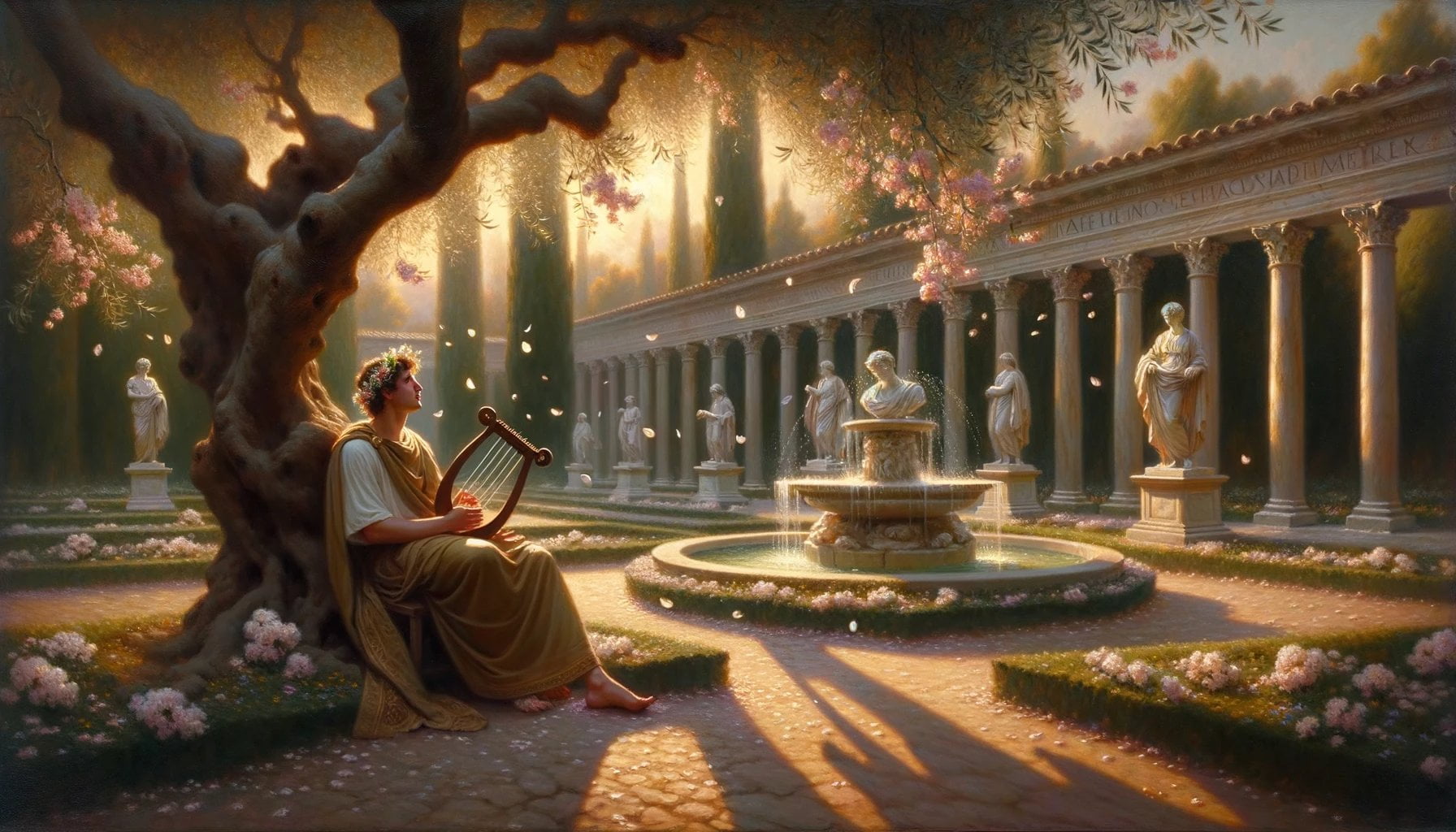
FAQ
Q1: What are some examples of famous Roman poets?
A1: Some examples of famous Roman poets include Virgil, Horace, Catullus, Propertius, Tibullus, and Ovid.
Q2: What is Virgil known for?
A2: Virgil is known for his epic poem The Aeneid, which tells the story of a Trojan hero named Aeneas.
Q3: What are Horace’s famous works?
A3: Horace is recognized for his collection of lyric poems called The Odes, which cover a wide range of themes and subjects.
Q4: What is Ovid’s most celebrated work?
A4: Ovid’s most celebrated work is Metamorphoses, a long verse poetic text that retells ancient Greek and Roman legends.
Q5: What is the Golden Age of Roman poetry?
A5: The Golden Age of Roman poetry refers to the period from approximately 70 BCE to 14 CE when notable poets such as Virgil, Horace, Catullus, and Ovid flourished.
- Crypto Quotes’ Red Flags: Avoid Costly Mistakes - June 30, 2025
- Unlock Inspirational Crypto Quotes: Future Predictions - June 30, 2025
- Famous Bitcoin Quotes: A Deep Dive into Crypto’s History - June 30, 2025
